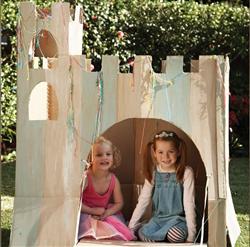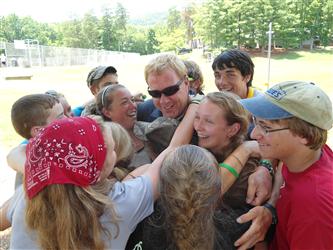Are You Prepping for College Yet?
By Guest Blogger Becky Medlin
Asking a child “What do you want to be when you grow up?” may reveal his dreams of being a doctor or an astronaut. During elementary school, my sister declared that she wanted to become a doctor, and that’s exactly what she did. For others, the path is not as clear. Parents can help kids reach their dreams by ensuring that they receive a college education. Preparing for college should begin early and requires the three key factors that influence college admissions decisions: good grades, course selection, and community involvement.
Strong Grades & Course Selection
Not to minimize the importance of the elementary school years, I strongly believe that middle school is the perfect time for students to begin preparing for college. As a former 7th grade teacher, I know the impact a student’s academic performance in 7th grade can have on 8th grade course placements. For example, success in 7th grade math can lead to placement in Algebra I in 8th grade and, with successful completion of Algebra I, the student is on track to tackle rigorous courses in high school.
One great way to support your child’s academic success in middle and high school is to arrange for a tutor. Tutoring benefits all students, not just struggling ones, as it can be a way to preview subject matter and reinforce skills. Every child can benefit from after school or private tutoring, so find a way to make it happen within your budget and schedule. Start the search by asking your student’s teacher if they have tutoring sessions or contact Guidance for tutor recommendations.
Regular, Honors, Seminar, or AP?
During 8th grade, your child’s teachers will recommend course placements for 9th grade. Before you sign the registration paper, you and your child need to read the High School Registration Handbook carefully and research the recommended courses. (Links are included below) School System handbooks can provide descriptions of course levels and an overview of each class. Many will also include other important details such as unweighted Grade Point Average (GPA) and weighted Quality Point Average (QPA), or course weights (the NC Board of Education revised the QPA calculation beginning with next year’s freshman class). You and your child need to determine if each class matches his or her interests and abilities.
Alamance-Burlington School System
Winston Salem/Forsyth County Schools
If your child is capable of handling Honors or Seminar level coursework, request those classes. Use teacher recommendations as a guide, not an absolute. If you think your child should be placed in Seminar, not an Honors level class, then talk with the teacher. If changes need to be made, use the appropriate forms to request the change and do so before the school’s deadlines. Advanced Placement (AP) level courses, which are college-level classes and provide an opportunity for students to earn college credit, are not available to 9th graders typically. However, there are exceptions, so talk with your child’s teachers and Guidance Counselor if an AP course seems to be the right choice for your child.
The handbook also explains block scheduling. Specific courses are offered as yearlong A/B day courses and others are block, which span one semester. When my oldest son enrolled for 9th grade, I was surprised to learn that English is a block class. I didn’t want half of his academic year to be void of reading and composition, so we worked together and found a solution that worked for him. As a result, he signed up for a Speech and Debate class that was offered during the following semester.
Before making final choices, visit the high school your child will attend and speak to teachers and guidance counselors about the coursework and schedules. Seek out school tours or special events to do your research. Tours are a perfect time for rising 9th graders, or students transferring from private schools, to walk the halls, learn more about courses, meet students and teachers, and find out about extracurricular activities.
Extracurricular Participation
Research shows that student involvement in extracurricular activities directly correlates to academic success, so encourage your child to participate in a sport, club, or Crosby Scholars. Being part of a team, for example, requires students to learn how to manage their time and it fosters friendships, both of which will have a positive impact. If your child wants to play a fall sport, contact the coach to find out anticipated tryout dates and ask if there will be any summer workouts. Summer workouts helped my sons get fit and make new friends before tryouts, which eased the stress of the middle-to-high school transition.
High schools offer a variety of clubs and service organizations for students. One unique organization available to all Forsyth County public school students in grades 6-12 is Crosby Scholars, a nonprofit, college access program. Crosby Scholars requires volunteerism and attendance at college-focused academic and personal growth workshops. As a participant, students must commit to being drug-free and obeying school rules. High school participants must enroll in the program no later than 10th grade and are eligible for special college scholarships. To learn more or apply, see your Guidance Counselor or visit www.crosbyscholars.org. As a parent of two Crosby Scholars, I highly recommend the program.
Remember, you are not alone. Utilize the resources available at your school’s Guidance Department. Counselors can provide you with a wealth of information about how to assist your child in preparing for college.
My sons attend Mount Tabor High School, and their Guidance Department holds events for students and parents on each grade level with their Tabor Forum Series. Check with your local High School’s Guidance Department and see if they provide similar events. It’s time to do your homework!







